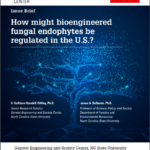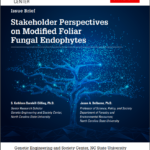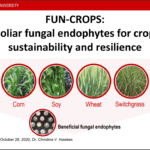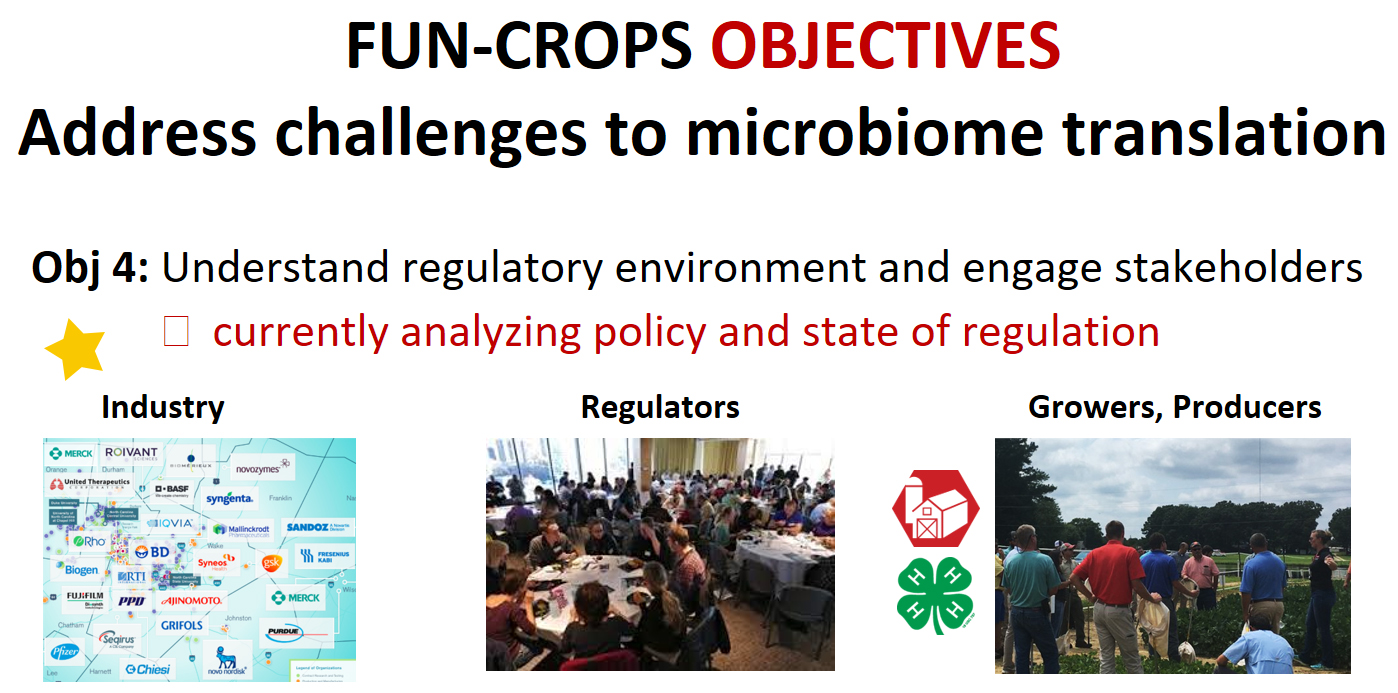About
Research scientists at North Carolina State University are exploring ways to harness plant fungal symbionts – specifically foliar fungal endophytes – to improve crop resistance to stressors such as drought, pests, and pathogens. Although this project is in an exploratory, basic research phase, the investigators recognized the importance of engaging stakeholders about their perspectives on the potential utility of fungal manipulations on crops.
For additional information about the project—including other project objectives and personnel—see https://hawkeslab.wordpress.ncsu.edu/funcrops/ or the CALS press release.
Support for this project was provided by North Carolina State’s Game-Changing Research Incentive Program for Plant Sciences Initiative (GRIP4PSI).
Authors: S. Kathleen Barnhill-Dilling <skbarnhi@ncsu.edu> & Jason A. Delborne <jadelbor@ncsu.edu>
PI for this project is Christine Hawkes <chawkes@ncsu.edu> Professor, Department of Plant and Microbial Biology
Objectives
- Identify appropriate scales to manage the plant microbiome
- Determine how the microbiome affects the plant phenotype, focusing on stress rescue
- Build tools for rapid field detection of microbial taxa and traits
- Understand regulatory environment and engage stakeholders
- Focus of GES affiliated project team members
Project Publications
Resources related to the regulatory and stakeholder research (objective 4) being conducted by FUN-CROPS team members affiliated with the GES Center.
| Cover | Description |
|---|---|
 | How might bioengineered fungal endophytes be regulated in the U.S.?Type: Policy Brief
July 2021 |
 | Stakeholder Perspectives on Modified Foliar Fungal EndophytesType: Review paper
Sept 2021 |
 | FUN-CROPS: Foliar fungal endophytes for crop sustainability and resilienceType: PowerPoint presentation
Oct 2020 |

